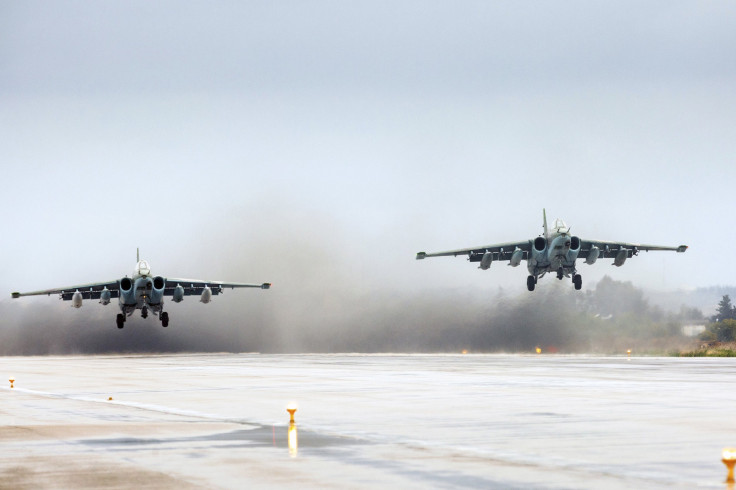Russian Military Slow To Leave Syria? Ground Forces Continue To Support Assad, US Army Colonel Says

Days after declaring a major military withdrawal from Syria, Russian defense forces in the war-torn country have sent home only around eight of the 40 aircraft it had based there and have kept nearly all ground forces in position, according to a debriefing at the Pentagon on Wednesday. Operation Inherent Resolve spokesperson Col. Steve Warren, who spoke via live stream from Iraq, said the U.S. was monitoring Russian military forces in the country and confirmed that Moscow’s warplanes were still flying non-attack sorties over Syria.
Asked whether Russian defense forces were fulfilling promises to depart the country, Warren said the U.S. military was “diligently” trying to find out. “We haven’t seen a significant reduction of their combat power, and particularly their ground combat power remains static,” Warren said. “It’s difficult to know what their intentions are. As we compare their words to their actions, we’ll have to wait and see what develops.”
Russia announced Monday that its mission in Syria was complete and it would begin withdrawing a core element of its forces, which first arrived in September of last year in order to prop up President Bashar Assad’s government forces and fight the Islamic State group. However, Western officials contend that rather than fighting against the terrorist organization, aka ISIS, Kremlin forces had actually been targeting the coalition-aligned rebel forces that oppose Assad.
Syria: w/drawal of Russian acrft/troops: ground forces seem steady. As we compare their words with their actions, we'll have to wait and see
— COL Steve Warren (@OIRSpox) March 16, 2016
While it’s not yet clear what Russian President Vladimir Putin’s intentions are with the withdrawal of his military, it’s believed Moscow had become frustrated with the Assad regime's failure to fully engage in the Geneva peace process. It's believed by analysts that showing Assad he cannot rely on Russian military support ensures that his authoritarian regime must compromise in that process.
“They’ve been frustrated for months by the quality of Assad’s leadership, and more recently by his reluctance to participate in the peace process,” William Courtney, a former U.S. ambassador to Georgia and Kazakhstan, told International Business Times on Tuesday. Courtney was also senior director for Russian and Ukrainian affairs under President Bill Clinton. “The withdrawal has been very much about publicly humiliating Assad and showing him that if he doesn’t take part in the peace process he could face a similar fate as other dictators that have been overthrown in recent years.”
In addition, there are fears among the Russian public that the country could become involved in a war similar to the Soviet Union’s 10-year conflict in Afghanistan in the 1980s that saw 15,000 troops die and another 50,000 injured. A war of that magnitude would reflect badly on Putin during a time of economic turmoil back home.
Warren pointed out in his Pentagon address Wednesday that attacks by Syrian government forces against moderate rebels had reduced considerably, while Russian ground forces continued to support attacks against ISIS in Palmyra, the ancient Syrian city in the center of the country.
“In accordance with the agreed cessation of hostilities, we have seen a fairly noticeable reduction in the amount of activity against the opposition forces,” Warren said. “The regime are in a process of attacking ISIL forces in and around Palmyra, [and] the Russian forces that had been providing support for that campaign continue," he said, using yet another name for ISIS.
© Copyright IBTimes 2024. All rights reserved.






















